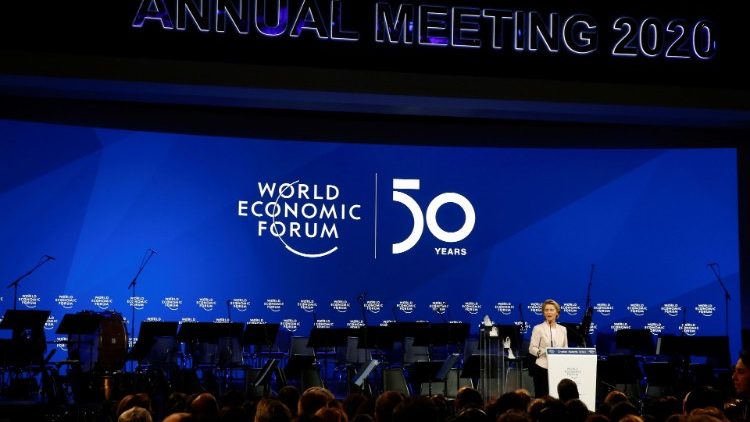A message to the Forum from Pope Francis was read on Tuesday by Cardinal Peter Turkson, Prefect of the Vatican Dicastery for Promoting Integral Human Development.
The January 21 to 24 meeting on the theme, “Stakeholders for a Cohesive and Sustainable World”, is marking the WEF’s 50th anniversary.
Founded in 1971, the international organization for public-private cooperation brings together the foremost political, business, cultural and other leaders of society to shape global, regional and industry agendas.
A better world
Focusing on the Forum’s theme, Pope Francis, in his message, noted that the organization offers the various stakeholders the opportunity to explore innovative and effective ways of building a better world. It also provides the opportunity to overcome isolationism, individualism and ideological colonization that, he said, “sadly characterizes too much contemporary debate”.
He noted that many of the developments in the economy, labour markets, digital technology and the environment have benefitted humanity but laments that they also have had adverse effects and created significant development lacunae.
Integral human development
The Pope reminded the WEF that “we are all members of the one human family”. This, he pointed out, is the basis of the moral obligation to care for one another and of the “principle of placing the human person, rather than the mere pursuit of power or profit, at the very centre of public policy”.
This calls for going beyond short-term technological or economic approaches and giving full consideration to the ethical dimension in seeking resolutions to present problems or proposing initiatives for the future.
The common good
The Pope lamented that too often, “materialistic or utilitarian visions, sometimes hidden, sometimes celebrated, lead to practices and structures motivated largely, or even solely, by self-interest.” This approach, he said, views others as a means to an end and entails a lack of solidarity and charity, which lead to real injustice.
On the other hand, he noted that a truly integral human development can only flourish when all members of the human family are included in, and contribute to, pursuing the common good.
“In seeking genuine progress,” the Pope urged that the WEF not forget that “to trample upon the dignity of another person is in fact to weaken one’s own worth.”
In this regard, Pope Francis also underscored the importance of an “integral ecology” with regard to our common home.
While acknowledging the achievements of the past fifty years of WEF, the Pope hoped that the Forum will keep in mind the “high moral responsibility each of us has to seek the integral development of all our brothers and sisters, including those of future generations”.
He hoped that their deliberations lead to a “growth in solidarity, especially with those most in need, who experience social and economic injustice and whose very existence is even threatened”.
ENDS


